Iranian Conservative Daily Hints At Action Against Unveiled Minor Girls
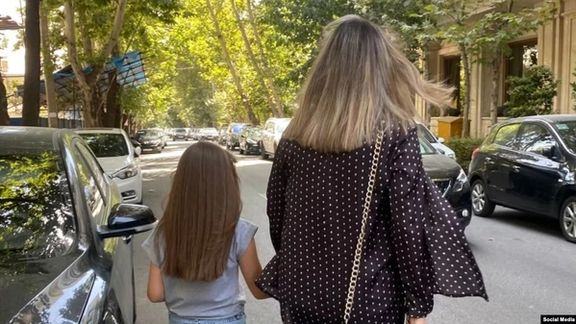
An editorial in Kayhan, Iran’s hardliner daily newspaper, has suggested that girls under 18 who do not wear the mandatory hijab should be arrested.

An editorial in Kayhan, Iran’s hardliner daily newspaper, has suggested that girls under 18 who do not wear the mandatory hijab should be arrested.
The article titled ‘A Nudge to the Architects of the Chastity and Hijab Bill,’ indirectly called for assertive action to be taken against unveiled minor girls.
This viewpoint emerges in response to a statement made by the Speaker of the Parliament on August 13, who said that girls under 18 would not be subjected to summoning or police involvement under the Chastity and Hijab Bill, which penalizes women who fail to observe the compulsory dress code.
Also responding to the statement by the Speaker of the Parliament, pro-reform Sazandegi newspaper said the statement was a "blatant confession" and proves that the regime is driven by political and ideological motives rather than Islamic jurisprudence, otherwise girls under 18 cannot be exempted and are accountable for their hijab at puberty.
Meanwhile, lawmaker Gholamreza Nouri Ghezeljeh revealed that Article 5 of the bill stipulates that minor students violating the law three times will face referral to the disciplinary committee or the security office of their educational institution. Nouri emphasized the need to scrutinize the bill's architects and their intentions within the educational context, highlighting a lack of comprehensive understanding among decision-makers.
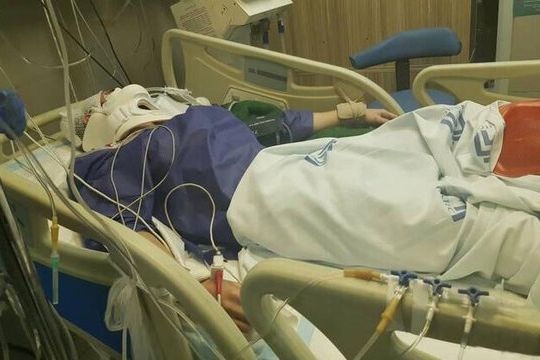
A portion of a 14-year-old boy’s skull that doctors had temporarily removed due to brain swelling, has gone missing at a hospital in Minab, Hormozgan Province.
Reports say that the teenager, identified as Hamza, sustained a brain injury in a motorbike accident in May. Initial cranioplasty surgery involved the removal of part of his skull to relieve pressure on his brain from swelling.
Doctors planned to reattach the piece of skull after recovery, but Hamza's father revealed to local media that during a recent hospital visit, medical staff informed him that the missing portion was "unavailable."
Authorities are investigating the matter and said that if negligence is established, appropriate legal action will be taken.
Dr. Hasan Zarei, Deputy of Treatment at Hormozgan University of Medical Sciences, said that Hamza's cranioplasty, during which a titanium implant was inserted in place of the removed section, was conducted “successfully” last Thursday. Regarding the missing piece, he said, “experts are currently investigating the matter and emphasized that any deviation from scientific and legal protocols will be addressed in accordance with regulations.”
He added that this surgery is a common medical procedure globally and urged trust in the medical institution.
Meysam Salehi, head of Hazrat-e Abolfazl Hospital in Minab also confirmed that investigations are ongoing and confirmed that in the case of negligence, “appropriate legal measures will be taken”.
According to medical officials in Hormozgan Hamza's vital signs are stable, and he has been discharged from intensive care, remaining under hospital care in the surgical ward.
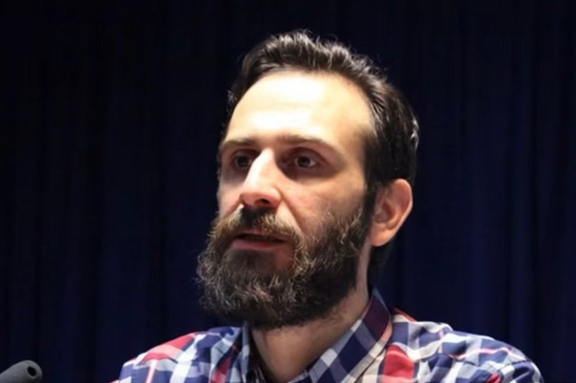
Amid faculty suspensions for supporting student protests, Tehran’s Allameh University has formally terminated a renowned sociology professor.
After being issued with a "Collaboration Termination" letter, Dr. Mehdi Khoiee, a professor at the university for the past seven years, posted about the termination on his Instagram account. "I am left pondering where to channel my grievances against this glaring injustice,” he wrote
The termination follows a growing trend of academic staff being subject to punitive measures for their perceived association with student dissent.
Students from the Faculty of Social Sciences at the university voiced their outrage at his expulsion in an official statement, which drew attention to the mounting wave of dismissals ranging from student suspensions to the abrupt expulsion of committed faculty members like Dr Khoiee.
Moreover, the statement issued by the student body drew attention to the case of another academic, Professor Armin Amir, who met a similar fate due to his empathetic stance towards protesting students.
This incident is part of a broader pattern affecting the academic community, whereby educators from institutions across the country have faced suspension or expulsion due to their solidarity with the students' expression of dissent.
Student unions nationwide view these actions as part of a wider initiative to cleanse universities and criticize the regime for trying to dismantle a bastion of free inquiry and discourse.
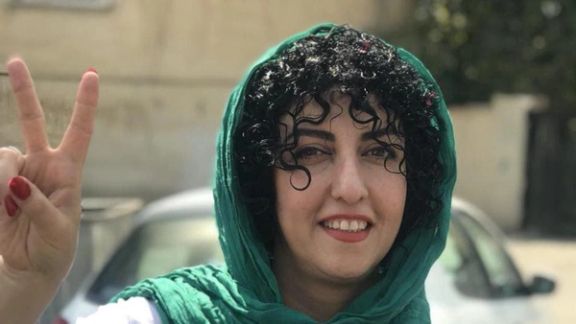
Imprisoned civil and human rights activist Narges Mohammadi has warned against increased violence against female prisoners inside the women's ward of Tehran’s notorious Evin prison.
In a letter published on Thursday, Mohammadi revealed disturbing details of physical harassment, abuse, and assault inflicted on women inmates over the past three months, in the lead up to the anniversary of the nationwide protests.
Mohammadi's letter, posted on her Instagram account, sheds light on a distressing pattern of escalating violence, extending from the arrest process to the transfer to prison facilities. She described detainees arriving at the Evin Prison with "bruised and battered heads, faces, and bodies," and expressed concern over the harrowing consequences if this distressing trend persists.
Having previously issued multiple letters highlighting the dire conditions within prisons and detention centers, Mohammadi specifically raised the alarm about violence targeting detainees and called for an investigation into allegations of "sexual assault against detained women."
Mohammadi labelled the acts of brutal and lethal violence as "systematic" and "intentional", orchestrated by the government against female protestors, aimed at instilling fear and terror.
Underscoring her point, Mohammadi detailed an incident where she witnessed the transfer of an injured woman with "bruised shoulders and hands" repeatedly uttering the words, "My leg is broken." This girl claimed that there were no surveillance cameras in her cell during the time of the beatings.
In her concluding remarks, Mohammadi sent a stern warning to the Islamic Republic, saying that the escalation of violence would not deter the unwavering determination of the people to liberate themselves from the grip of the oppressive religious regime.
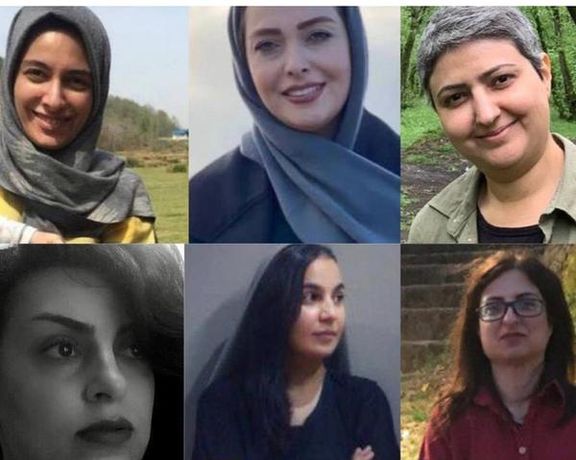
Iran's security forces have apprehended 11 citizens, including prominent women's rights activists, in a wave of arrests across several cities in Gilan province.
On Wednesday, security forces arrested and detained 11 citizens including five women's rights advocates, a photographer, a poet, a graphic designer, and three pharmacists.
Grounds for the arrests, which took place in the cities of Rasht, Fuman, Anzali, and Lahijan, remain unclear and no details have emerged of the prisoners’ wellbeing. Reports indicate that the majority were apprehended after security forces raided their homes.
This is the latest in a string of government clampdowns on activists, students, educators, and writers in the lead-up to the September 16th anniversary of Mahsa Amini’s death at the hands of police whilst in custody, which sparked nationwide protests.
In recent weeks, a significant number of university students across Iran have reported receiving anonymous phone threats and summonses by security agencies. Similar reports have been made by families of victims who have died in uprisings, particularly on the anniversaries of deaths. These threats are assumed as efforts to deter commemorative gatherings.
Additionally, there have been reports of security pressures exerted on families of the victims of the uprising particularly occurring on the anniversaries of deaths. perceived as efforts to deter commemorative gatherings.
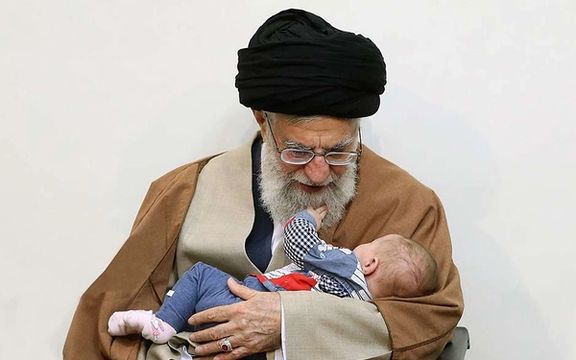
A new ban in Iran on screening kits for congenital anomalies has worried many who fear a sudden surge in the number of children being born with birth defects.
The health ministry’s food and drug administration website announced last week that it will no longer issue permits for production or imports of pregnancy associated plasma protein-A (PAPP-A) and free beta human chorionic gonadotropin (Beta-hCG) test kits.
Media have also reported that the ministry has been refusing to allow production or importation of enzyme linked immunosorbent assay (ELISA) tests.
These tests usually carried out during the first trimester of pregnancies are used to identify and assess the risk of various congenital conditions such as Down Syndrome and fetal aneuploidy (chromosomal anomalies) such as trisomy.
When asked about the discontinuation of the production and imports of these kits on Monday, the ministry spokesman, Pedram Pak-Ayeen, claimed that there was no ban and fetal screening has only been “standardized”.
The spokesman’s denial of the ban does not seem to be convincing to many including genetics experts and women’s rights activists who say denying them to women to preclude possibility of abortion is interfering in people’s personal decisions and violates women’s right to their bodies.
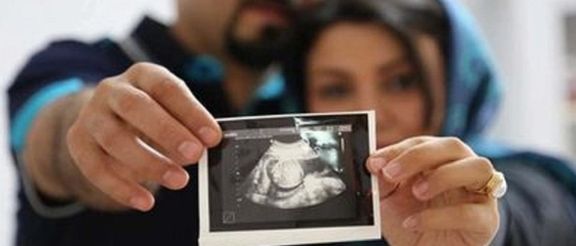
Calling the ministry’s decision “shocking”, Dr Mohammad-Amin Tabatabei, a member of the board of directors of the Iranian Genetics Society, said Monday that Iranians will be facing a greater risk of babies born with congenital and genetic anomalies due to the ban.
Tabatabaei stressed that the ministry has not consulted the genetics society and that the society will officially protest to the decision soon and demand a re-evaluation and warned that the ban could result in illegal imports of “notoriously expensive kits of uncertain standards.”
“Until now we had underground abortions, now we are going to have underground screening too,” a medical professional, Dr Mohammad Mir-Mohammadkhan, said in a post on X (former Twitter) Sunday.
Abortions have always been illegal in Iran, but termination was allowed during the first 18 weeks of pregnancy if the fetus was diagnosed with genetic disorders or carrying the fetus to term threatened the mother’s health or life.
On April 17, Soleiman Haydari, an official of the health ministry, told the Iranian Students News Agency (ISNA) that annually as many as 10,000 abortions were legally carried out.
In the past ten years the Iranian healthcare system has hugely limited screening tests and legal abortions and completely stopped its decades-old family planning programs.
Iran’s primary healthcare program had introduced several screening tests In 1991 that were routinely carried out as part of the existing mandatory premarital blood tests to prevent and control non-communicable diseases which have now been abandoned.
The government has also banned the sale of contraceptives and taken tough action against doctors and midwives who assisted terminations outside the healthcare system and shut down their clinics.
In July 2022 the health ministry announced that it had established a portal for medical professionals to register all pregnancies as a preventative measure against illegal abortions.
Iran's Supreme Leader Ali Khamenei believes efforts to increase the country's population are among the most urgent duties and essential policies of the Islamic Republic as the leading Shia country in the Muslim world and has repeatedly demanded that the population increase to 150 million.
The childbirth rate in Iran has been steadily declining over the past few decades. In the early 1980s, the population growth rate reached 4.8 percent. This rate has dropped to below one percent in the past decade.
Iran's population has doubled from around 40 million in the early 1980s to 84 million, but a declining birth rate means the median age at 32 is about the same as Saudi Arabia at 31.8, but higher than Iraq at 21.